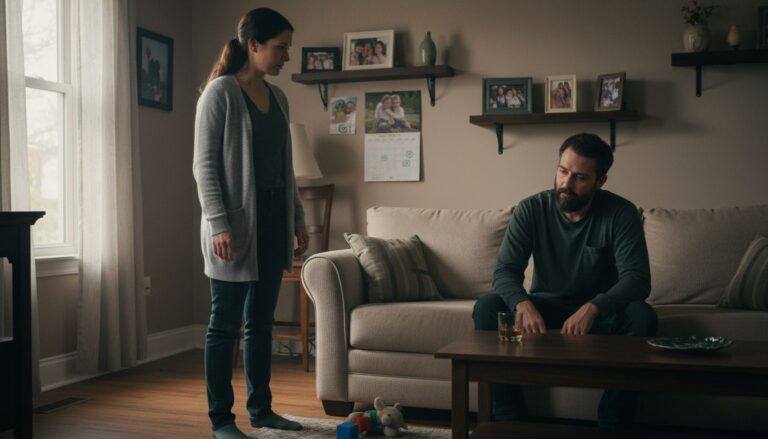When it comes to addiction and mental health treatment, finding the correct therapeutic method can make a world of difference. At Glendora Recovery Center, we offer a variety of approaches to help individuals heal emotionally and mentally. Two popular therapies, Art Therapy and Eye Movement Desensitization and Reprocessing (EMDR), have emerged as effective options for individuals recovering from addiction and mental health challenges. But how do they compare, and which might be better suited to your needs? Let’s explore the differences, similarities, and benefits of Art Therapy vs EMDR in the context of addiction and mental health treatment.
What is Art Therapy?
Art Therapy is a form of psychotherapy that uses the creative process to help individuals express themselves, especially when verbal communication is difficult. Participants are encouraged to explore their emotions, thoughts, and experiences through various mediums like painting, drawing, or sculpting.
This type of therapy is particularly beneficial for those struggling with addiction because it offers a non-verbal outlet for processing complex emotions tied to substance abuse. Art Therapy helps individuals:
- Express suppressed or difficult-to-verbalize emotions.
- Gain insight into underlying issues contributing to addiction.
- Build self-esteem and confidence through creative accomplishments.
In addiction treatment, Art Therapy provides a safe space to explore the emotional roots of substance abuse, allowing for deeper healing and personal growth.
What is EMDR?
Eye Movement Desensitization and Reprocessing (EMDR) is an evidence-based therapy designed to help individuals process traumatic memories. In EMDR sessions, clients focus on distressing thoughts or memories while engaging in guided eye movements, sounds, or taps. This process is believed to help the brain reprocess traumatic events, reducing their emotional impact.
EMDR has proven highly effective for individuals dealing with trauma, PTSD, and other mental health issues, including addiction. Often, substance abuse stems from unresolved trauma, and EMDR offers a structured method to process and heal from these experiences.
Key benefits of EMDR in addiction and mental health treatment include:
- Reducing the emotional charge of traumatic memories.
- Improving emotional regulation and coping skills.
- Addressing the root causes of addiction rather than just the symptoms.
Comparing Art Therapy and EMDR in Addiction Treatment
When it comes to Art Therapy vs EMDR, both therapies offer unique advantages for individuals in addiction recovery and mental health treatment. Here’s how they compare:
- Non-Verbal vs. Verbal Processing: Art Therapy is primarily non-verbal, making it ideal for individuals who struggle to articulate their emotions. EMDR, on the other hand, requires clients to recall and discuss distressing memories while engaging in the eye movement process, blending verbal and non-verbal techniques.
- Creative Expression vs. Structured Processing: Art Therapy encourages creativity and self-expression, offering a more flexible and open-ended approach to healing. EMDR is highly structured, following a specific protocol to process traumatic memories.
- Focus on Trauma: EMDR is specifically designed to treat trauma and PTSD, making it highly effective for individuals whose addiction is rooted in past traumatic experiences. Art Therapy, while beneficial for trauma survivors, is broader in scope and can address a wider range of emotional and psychological issues.
- Emotional Catharsis vs. Desensitization: Art Therapy often leads to emotional catharsis, helping individuals release pent-up emotions through creative expression. EMDR, in contrast, aims to desensitize the emotional intensity of traumatic memories, making them less distressing over time.
Both Art Therapy and EMDR have been successfully integrated into addiction treatment programs. The choice often depends on the individual’s needs, preferences, and mental health challenges.

The Role of Art Therapy and EMDR at Glendora Recovery Center
At Glendora Recovery Center, we understand that addiction and mental health challenges are deeply personal and that one size doesn’t fit all when it comes to treatment. We offer Art Therapy and EMDR as part of our comprehensive addiction recovery program.
- Art Therapy: We provide a supportive environment where clients can explore their emotions through creative outlets. Our licensed therapists guide participants through the artistic process, helping them express their feelings and gain insights into their recovery journey.
- EMDR: For individuals with trauma-related addiction, we offer EMDR therapy to help them reprocess traumatic memories in a safe, controlled environment. Our certified EMDR therapists work with clients to desensitize the emotional impact of these memories, paving the way for long-term recovery.
Which Therapy is Right for You?
Suppose you’re wondering whether Art Therapy or EMDR is better suited for your needs. In that case, it’s essential to consider your personal history, emotional preferences, and the underlying causes of your addiction or mental health challenges.
- Art Therapy may be the ideal choice if you find it difficult to verbalize your feelings or prefer a more creative approach.
- If your addiction stems from trauma or you’re seeking a highly structured method to address PTSD, EMDR might be more appropriate.
At Glendora Recovery Center, our team of experienced therapists will help you determine the best therapeutic approach for your recovery journey. Whether you choose Art Therapy, EMDR, or both, you’ll receive compassionate, personalized care that supports your healing and growth.

Get Addiction Treatment Today
Both Art Therapy and EMDR are powerful tools in the fight against addiction and mental health challenges. By offering different avenues for emotional exploration and healing, these therapies allow individuals to process their pain and rebuild their lives. At Glendora Recovery Center, we’re committed to helping you find the therapy that best supports your recovery.
If you or a loved one is struggling with addiction or mental health issues, reach out to us today. Let’s explore how our comprehensive treatment options, including Art Therapy and EMDR, can help you reclaim your life.



